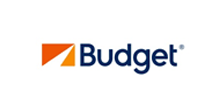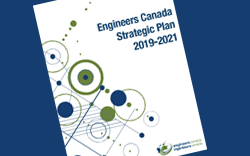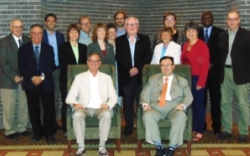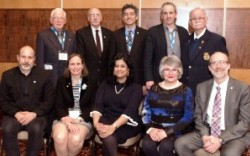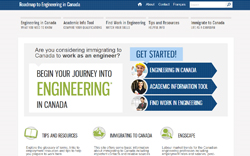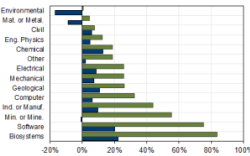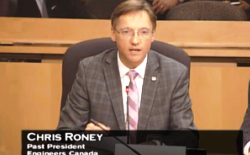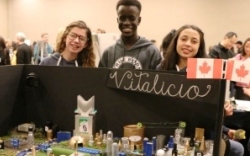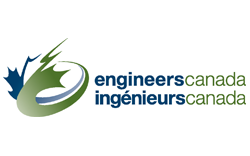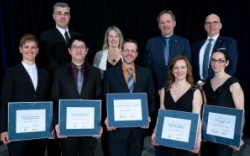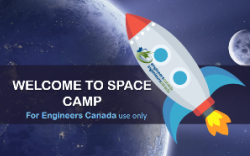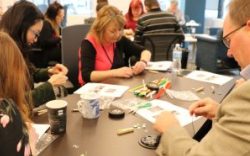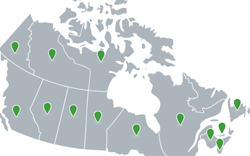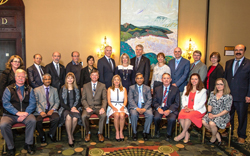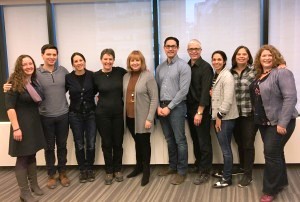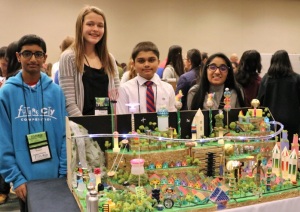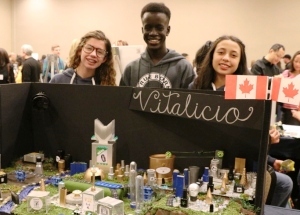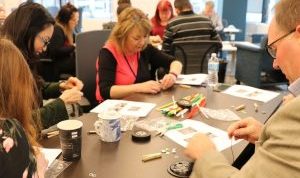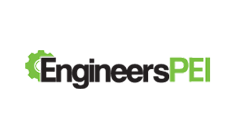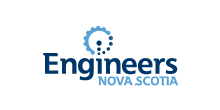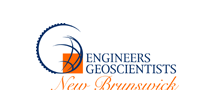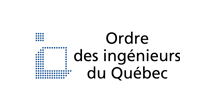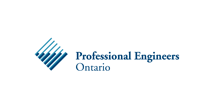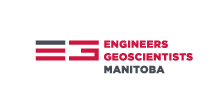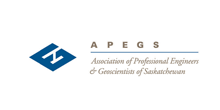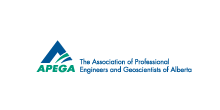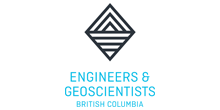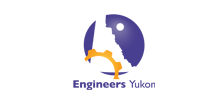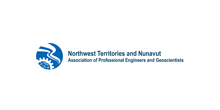President's message
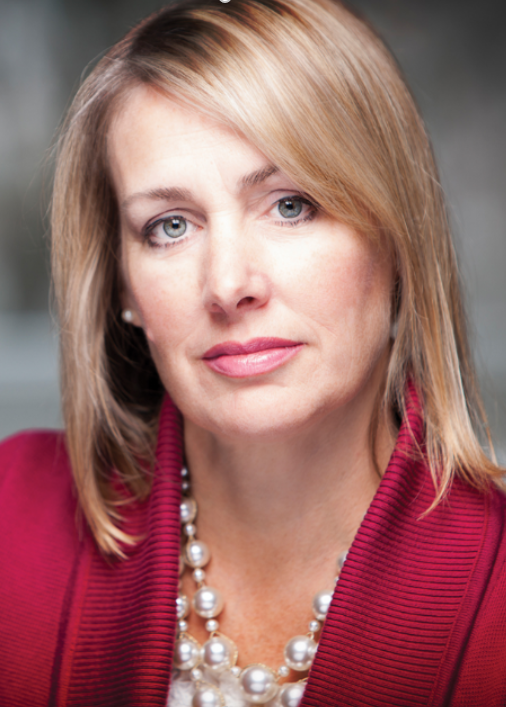
2018 marked a year of transformational change for Engineers Canada, and it is my pleasure to share some of our accomplishments with you in this report. This year we have continued to uphold the honour, integrity, and interests of the engineering profession by supporting consistent high standards in the regulation of engineering, encouraging the growth of the profession in Canada, and inspiring public confidence. Moreover, we have done so with aplomb, reinvigorating our purpose, our direction, and our leadership.
At the forefront of our accomplishments this year is the tremendous progress we made on the Governance, Strategic Planning, and Consultation project (GSPC). This project was conceived in 2017 to solve a core problem for Engineers Canada: the regulators did not feel that they were being adequately consulted about Engineers Canada’s activities, and they were dissatisfied with how Engineers Canada was operating and what it was achieving. In 2018, largely through the hard work of the Governance Committee, the GSPC project delivered in four major areas that addressed, structurally, the most important issues surrounding accountability, roles, and responsibilities. These included the approval of the 10 purposes of Engineers Canada, the 2019-2021 Strategic Plan, a consultation program, and the substantial revision and redevelopment of our governance policies. Each of these accomplishments was achieved ahead of schedule and below budget, with no reduction in scope or quality. Collectively, they have reinforced the primacy of regulator-first service in the success of Engineers Canada.
Within that framework, major projects included our continued work to improve the accreditation criteria and process for undergraduate engineering education. To stay responsive to the evolving ways in which engineering education is delivered, the Accreditation Unit Task Force conducted a national consultation on the “Learning Unit”, which would take in to account more than just classroom learning. In parallel to this, the Accreditation Improvement Program hit several milestones, including the selection of a vendor for the data management system that will support both accreditation and the Enrolment and Degrees Awarded Survey for years to come. Along with the initial work on this important technical platform, we have begun to improve support processes for accreditation, making systematic enhancements to stakeholder consultation and communication, volunteer management, and continual improvement processes.
This year also saw the continuation of Engineers Canada’s work on qualifications, mobility and foreign credential recognition, federal government relations, and diversity and outreach. We’ve introduced new one-of-a-kind insurance and financial offerings for engineers and their families, and we’ve celebrated individual engineers and teams of engineers for their engineering excellence and contributions to the profession. Across the organization, staff have worked with a renewed sense of dedication and purpose.
Much of what was accomplished was made possible through the leadership of Engineers Canada’s new CEO, Gerard McDonald, who we welcomed to the organization in February 2018. As the former registrar of PEO, and as someone with extensive experience as a civil servant at the highest levels of the federal government, Gerard has a proven ability to execute on the Board’s direction. Under his guidance, Engineers Canada has already become a more focused and effective organization, ready to move forward on its new, three-year strategic plan.
I invite you to explore in more depth some of the many highlights of this transformational year. Thank you to Engineers Canada staff, Board members, member regulators, and volunteers for all of their hard work and for their ongoing commitment to advancing the engineering profession. It has been an honour to serve as president, and I look forward to seeing what we will accomplish together in 2019.
Annette Bergeron, MBA, FCAE, FEC, P.Eng.
President
1. Governance and process enhancements
Governance, Strategic Planning, and Consultation project
The Governance, Strategic Planning, and Consultation (GSPC) project was conceived in 2017 to solve a core problem for Engineers Canada. The regulators did not feel that they were being adequately consulted about Engineers Canada’s activities and they were dissatisfied with how Engineers Canada was operating and what it was achieving. A lack of transparency, accountability, and results was causing a loss of trust and confidence, and there were conversations about leaving or dissolving Engineers Canada. 2018 represented a dramatic reversal of this situation. The GSPC project has delivered in four major areas that address, structurally, the most important issues surrounding accountability, roles, and responsibilities, and the project has reinforced the primacy of regulator-first service in the success of Engineers Canada.
Each of the accomplishments under this program was achieved ahead of schedule and below budget, with no reduction in scope or quality:
- The 10 Purposes of Engineers Canada were approved by the members in May 2018, and our articles of continuance were officially updated by Industry Canada in September.
- The 2019-2021 Strategic Plan was finalized and approved by the members in May 2018, with a performance reporting plan finalized by the Board in September. These documents embody a nation-wide collaboration with all regulators.
- A new strategic planning process was finalized and will guide the development of future plans.
- The consultation program, which will codify and organize the method by which Engineers Canada gets regulators’ input regarding our programs, projects, and services, was completed.
- A second round of governance improvements (“Governance 2.0”) was developed and proposed to the regulators.
- We initiated required policy updates to move us from the old governance model to the new one, and to incorporate the improvements from the GSPC project. The Governance Committee deserves special recognition for its work on drafting and getting approval for 57 new and revised policies.
In 2019, this work will be completed. The Governance 2.0 recommendations were the subject of consultations with the regulators in January and February 2019, and the necessary policy and bylaw changes to enact those improvements will be completed by May 2019.
Process enhancements
Under new guidance in 2018, we began work on the 2019 Annual Operations Plan (AOP) and budget much earlier than in the past, which allowed for a smoother budgeting and planning process overall. In support of this enhanced planning, the Board created a Finance Committee in May, who reviewed the 2019 draft budget in the summer, readying it for discussion at the September Board meeting. Ultimately, this facilitated the approval of the 2019 budget in December with only minor modifications.
2. Canadian Engineering Accreditation Board

Canadian Engineering Accreditation Board
2018 was a year of increased stakeholder interest and participation in accreditation activities. We welcomed more Engineers Canada directors and regulator staff to our visiting teams, which was a great opportunity for them to gain meaningful understanding about the issues and realities of accreditation, and for us to learn about their concerns and priorities. We also had more contact with the National Council of Deans of Engineering and Applied Science (NCDEAS) and with higher education institutions’ faculty and staff through collaborative meetings, workshops, and information sessions. Finally, we increased our dialogue with the Canadian Federation of Engineering Students (CFES) to gain a better understanding of their perspectives on engineering education. This higher degree of collaboration will help us as we address the strategic priority assigned to the Accreditation Board in the 2019-2021 Strategic Plan: Accountability in Accreditation.
Accreditation Unit Task Force
The Accreditation Unit (AU) Task Force’s was established for several reasons:
- To consider the definition of an AU in its present form and to identify, the advantages, disadvantages, and ramifications of any definition change on existing criteria.
- To envisage how curriculum content requirements could be linked to student outcomes and graduate attributes, whatever system of AU counts is used.
A national consultation on AUs was completed in spring 2018, based on the recommendations that the AU Task Force delivered to the Board in February. The consultation invited all regulators, higher education institutions, and other interested stakeholders to provide feedback on the recommendations. The task force subsequently summarized stakeholder feedback in a consultation report that was presented to the Board in September. This report identified four consistent themes:
- Stakeholders anticipated that a proposed “Learning Unit” (LU) had the potential to offer needed flexibility in measuring curriculum content that is not actual contact time between student and faculty members.
- There was general support from stakeholders to execute an LU verification project.
- Several stakeholders expressed caution around the auditability of the LU as defined in the Task Force recommendations.
- Several stakeholders expressed caution around implementing any approved changes too quickly. Some recommended establishing an upper limit on the number of courses to which the LU could be applied.
Based on this feedback, and given the willingness of stakeholders to consider alternative methods for curriculum measure such as the LU, in early 2019 the AU Task Force developed a white paper that re-examined the basic purposes of including curriculum measurement in the accreditation criteria. The white paper proposes a measurement framework that has the potential to provide engineering education programs with the flexibility required to adopt changes in education program delivery. The white paper also proposes a model curriculum schedule that can serve as a reference for measurement methods that specify the minimum length of a program. Once this white paper is delivered to the CEAB in June 2019, this task force will have completed all tasks assigned under its mandate.
Accreditation Improvement Program
The Accreditation Improvement Program (AIP) is a coordinated effort to improve the delivery of accreditation for engineering programs and of the Enrolment and Degrees Awarded survey. The work of this staff-led initiative is divided into four program elements:
- Improving our stakeholder communication and consultation process to ensure that the accreditation system is transparent and open to the input of those to whom it matters most.
- Developing a training program to improve consistency across accreditation visits by providing volunteers and educators the information they need in a timely and repeatable way.
- Selecting and implementing an improved data management system to ensure that the technical side of accreditation optimizes everyone’s use of time throughout the accreditation cycle. The system will also reduce duplication between entries for accreditation reporting and the Enrolment and Degrees Awarded survey.
- Introducing a process for continual improvement to ensure that the accreditation system stays responsive to the evolving needs of Canada’s engineering profession.
The AIP progressed well against its plan in 2018. The most significant milestone was the selection of Armature as the supplier for the new data management system, following a Request for Proposals process that garnered four proposals. Throughout the RFP development and vendor selection process, the Data Management System Advisory Committee provided valuable input from a user perspective. When deployed, the new system will provide an improved data management repository for the Enrolment and Degrees Awarded database and will become an integral part of an improved accreditation process. Notably, higher education institutions will use the new system, which has now been named Tandem, for the first time in spring 2019 to complete the annual Enrolment and Degrees Awarded Survey.
Other AIP milestones from 2018 include the deployment of a new accreditation team chair presentation template. This tool is a first step in standardizing the way visiting team members approach their work while on-site. It builds upon the training offered in the currently available online module. In addition, two September CEAB workshops (“Graduate Attribute/Continual Improvement Process” and “Definition of Design”) facilitated collaborative thinking and consensus building and served as training for accreditation board members and representatives of the higher education institutions.
3. Canadian Engineering Qualifications Board
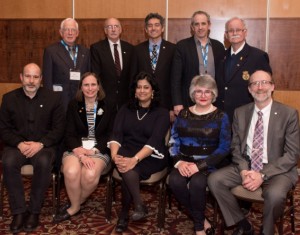
Members of the Qualification Board
The CEQB provides services and tools that enable the assessment of engineering qualifications, foster excellence in engineering practice and regulation, and facilitate mobility of practitioners within Canada.
In 2018, the CEQB published 10 new or updated documents:
- White paper on qualified persons in demand-side legislation
- Public guideline: Principles of climate adaptation and mitigation for engineers
- Regulators guideline on the academic assessment of non-CEAB applicants
- Public guideline: Direct supervision
- Regulators guideline: Mentoring programs
- Public guideline on site remediation for professional engineers
- Environmental engineering syllabus
- Geological engineering syllabus
- Geomatics engineering syllabus
- Mining and mineral processing engineering syllabus
The CEQB also consulted regulators on three general directions, seven draft documents, and new web content for engineers-in-training. National workshops were also held on environmental engineering and on engineering entrepreneurship. A massive open online course, Sustainability in Practice, developed in partnership with Polytechnique Montréal, was successfully delivered to 1,554 participants, who represented every province and territory in Canada.
The CEQB continued improving its processes by adopting a new consultation process and a new protocol for reviewing and revising examinations syllabi. It also adopted a new work plan consultation process that is now in alignment with Engineers Canada’s 2019-2020 Strategic Plan. The new 2019-21 CEQB Work Plan was approved by the Engineers Canada Board in December 2018, following consultations with the CEO Group and national officials groups.
4. National officials groups
Engineers Canada facilitates collaboration among the engineering regulators by bringing individuals together to share best practices and challenges. These officials groups facilitate ongoing cooperation through meetings, discussions, and information-sharing within their areas of expertise.
National Admissions Officials Group
The National Admissions Officials Group met three times in 2018, covering a variety of key topics around international mobility, such as the International Institutions and Degrees Database, examination syllabi, national reference points, mobility registers, and the online Competency-Based Assessment project. The group also provided input for consultations of the CEAB and CEQB.
Finally, the group elected Kim King from Engineers Yukon as its new chair, and Mark Rigolo from Engineers and Geoscientists BC as its new vice-chair.
National Practice Officials Group
The National Practice Officials Group held four teleconferences and one in-person meeting in 2018. The group developed and refined a work plan with initiatives focused on key topics, such as continuing professional development programs and mobility, environmental sustainability committee mandates, and proposed principles for classes of licensure. They also provided input for CEQB consultations.
The group elected Pal Mann from APEGA as its new chair, and Michael Gregoire from Engineers Geoscientists Manitoba as its new vice-chair.
National Discipline and Enforcement Officials Group
The National Discipline and Enforcement Officials Group held three teleconferences and one in-person meeting in 2018. The group also developed and refined a work plan with initiatives focused on key topics, such as the sharing of discipline decisions, privacy in complaints and discipline processes, compensation for discipline committee members, ungovernability, off-duty conduct, sexual harassment complaints, enforcement, mediation, and communicating with the media on discipline cases. They also provided input for CEQB consultations.
The group elected Shawna Argue from APEGS as its new chair, and Carol MacQuarrie from APEGNB as its new vice-chair.
5. Mobility and foreign credential recognition
Online competency-based assessment
The nationalization of Engineers and Geoscientist British Columbia’s online competency-based work experience assessment tool progressed on time and on budget in 2018. We now have a fully pan-Canadian tool, being used by three regulators, which individual regulators can administer. In 2018, we had the chance to explore use of this same tool by OIQ and APEGA, and although both are using different platforms, the competency standard is common to all regulators. The fact that seven regulators now use the same competency standard is perhaps the greatest accomplishment of the project to date.
The User Steering Group, with representatives from all participating and soon-to-be-participating regulators, has been instrumental in establishing priorities, providing feedback, and guiding the development of a pan-Canadian system that provides benefits to regulators, applicants, and all of the volunteers involved in the licensure process.
Roadmap to Engineering
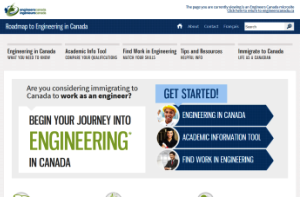
The Roadmap to Engineering website is an interactive tool intended to provide international engineering graduates with an understanding of the engineering profession in Canada and the licensing process. In 2018, the Roadmap to Engineering was visited by 31,766 new visitors, 70 per cent of whom are from outside of Canada, including countries such as Brazil, Columbia, India, Mexico, Saudi Arabia, Spain, the United Arab Emirates, the United Kingdom, and the United States.
The Roadmap website also has a self-assessment tool that international engineering graduates can use to compare their engineering degrees with Canadian degrees, and which can assist them in making a decision about immigrating to Canada. In 2018, this Academic Information Tool was used 15,089 times.
International Institutions and Degrees Database
Engineers Canada’s Foreign Credential Recognition team maintains the International Institutions and Degrees Database (IIDD), a tool that is used primarily by engineering regulator admissions staff as one of many inputs for assessing the educational credentials of internationally-trained applicants. Of the more than 4,000 institutions contained in the IIDD, the Foreign Credential Recognition team researched and updated the entries of 999 institutions in 2018, in addition to continuously updating notes on countries and mutual recognition agreements.
Mobility Register
Engineers Canada’s Mobility Register grants qualified Canadian engineers designations that indicate they meet a high standard of competence and are prepared to conduct engineering practices internationally. In 2018, Engineers Canada performed an audit of applicants and submitted results to the International Engineering Alliance. In total, 51 new registrants were added to the Mobility Register in 2018.
6. Research
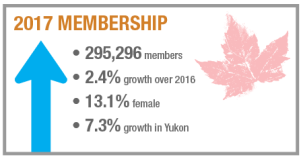
National Membership Report
Each year, Engineers Canada reports on trends in the membership of the provincial and territorial engineering regulators in its National Membership Report. The 2018 report gathered data from 2017 and found that there were 295,926 members of the twelve engineering regulators, of which 13.1 per cent were female. Total membership increased by 2.4 per cent, while female membership increased by 5.2 per cent. The report also included data on the residency of engineers, the number of engineers per 1,000 people, and the number of engineering students who proceeded along the path to obtaining their professional engineering licence.
Enrolment and Degrees Awarded Report
Engineers Canada’s annual Engineering Enrolment and Degrees Awarded Report surveyed 51 higher education institutions in Canada last year and revealed trends specific to discipline, education, and gender, as well as the number of engineering graduates available to enter the labour market, international students’ participation in Canadian engineering education, and students studying in co-op programs.
Canadian post-secondary institutions continue to report a strong growth in undergraduate degrees awarded, presenting 23.3 per cent more engineering degrees in 2017 than in 2013. Every engineering discipline awarded more degrees in 2017 than in 2013, and most engineering disciplines have experienced a growth in undergraduate enrolment numbers in the same period. The proportion of female students enrolled in undergraduate and post-graduate engineering programs established new records, reaching 21.8 per cent and 25.7 per cent of total enrolment, respectively. Enrolment and Degrees Awarded
7. Public affairs and government relations
Government submissions and testimony
Engineers Canada’s Public Affairs team advocates to the federal government for the engineering regulators and the engineering profession. In 2018, Engineers Canada secured three opportunities to testify in front of House of Commons and Senate committees to provide the federal government with an engineering perspective and recommendations on legislation, policies, and issues:
- Engineers Canada’s Testimony to the House of Commons Standing Committee on Indigenous and Northern Affairs
- Engineers Canada’s Testimony to the House of Commons Standing Committee on Human Resources, Skills and Social Development and the Status of Persons with Disabilities
- Engineers Canada’s Testimony to the Senate Standing Committee on Transport and Communications
In addition to these testimonies, Engineers Canada also submitted written briefs and recommendations to the government on numerous areas:
- Engineers Canada's Comments on the Frontier and Offshore Regulatory Renewal Initiative's (FORRI) Proposed Policy Intentions for Phase 3 of the Framework Regulations
- Engineers Canada’s Submission to the Standing Senate Committee on Energy, the Environment and Natural Resources on Bill C-69: An Act to enact the Impact Assessment Act and the Canadian Energy Regulator Act, to amend the Navigation Act and to make consequential amendments to other Acts.
- Engineers Canada’s Submission to the House of Commons Standing Committee on Transport, Infrastructure and Communities on the Canadian Transportation and Logistics Strategy
- Engineers Canada’s Pre-Budget Submission to the House of Commons Standing Committee on Finance in Advance of the 2019 Budget
- Engineers Canada’s Submission to the House of Commons Standing Committee on Transport, Infrastructure and Communities on the update on Infrastructure Projects and the Investing in Canada Plan
- Engineers Canada’s Comments on the Government of Canada’s Discussion Paper on Mining Ideas for the Canadian Minerals and Metals Plan
- Engineers Canada’s Submission to the House of Commons Standing Committee on Transport, Infrastructure and Communities on Automated and Connected Vehicles in Canada
- Engineers Canada Federal Budget 2018 Highlights and Analysis
- Engineers Canada’s Submission to the Standing Committee on Human Resources, Skills and Social Development and the Status of Persons with Disabilities
Finally, Engineers Canada’s written and verbal recommendations made in 2017 to the House of Commons’ Standing Committee on the Status of Women were included in the committee’s report entitled Women’s Economic Security: Securing the Future of Canada’s Economy, released in June 2018. Engineers Canada was quoted a number of times throughout the report. Engineers Canada is continuing to engage with this committee to further support the recommendations outlined throughout the report.
Trade agreements
In 2018, Engineers Canada consulted with Global Affairs Canada on the Canada-ASEAN Free Trade Agreement (FTA) and the Canada-Mercosur FTA. Additionally, we continued dialogue regarding the Canada-United States-Mexico Agreement (CUSMA) FTA. In our discussions with Global Affairs Canada regarding CUSMA, Engineers Canada and the regulators requested rules on behalf of the regulators around licensing procedures that use mutual recognition agreements, and rules regarding temporary and project-specific licensing. This work resulted in the inclusion of several key recommendations in the agreement.
Hill Day 2018
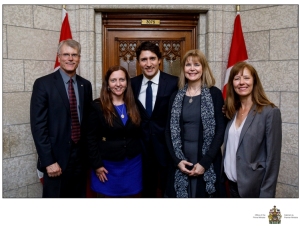
Hill Day
Engineers Canada hosted its annual Hill Day on Parliament Hill on April 24, 2018. Members of the Bridging Government and Engineers Committee, Public Affairs Advisory Committee, and Engineers Canada staff met with 56 members of Parliament to discuss how engineers can provide valuable, evidence-based, and unbiased advice in public policy and decision-making. In particular, the meetings addressed Engineers Canada’s government relations priorities: incorporating climate change vulnerability assessments into decisions on major infrastructure projects, and Engineers Canada’s efforts in supporting women, girls, and Indigenous Peoples in STEM.
National position statements
Engineers Canada uses national position statements to outline the public policy priorities of the engineering profession in our conversations with government. These statements provide evidence-based perspectives on matters of public policy that affect the engineering profession.
In 2018, the Public Affairs team developed three new national position statements that were approved by the Engineers Canada Board:
- STEM Education Research Funding
- Professional Practice in Software Engineering
- Confirmation of academic requirements
Advocacy
Throughout the year, the Public Affairs team regularly engaged in in-person meetings and email exchanges with elected officials (e.g. ministers, MP offices, senators) and public servants to promote engineering regulation and the engineering profession.
8. Diversity and Outreach
Youth
Engineers Canada supports four programs that introduce youth to the world of engineering: National Engineering Month, Future City, the engineering Girl Guides crest, and the Go Eng Girl program.
National Engineering Month (NEM) 2018 saw more than 560 events take place across Canada organized by hundreds of volunteers from the provincial and territorial regulators. In time for the month’s events, the NEM website was relaunched in February as ExploreEngineering.ca. While still catering to the National Engineering Month mandate, the site has now been refreshed to provide a year-round resource with expanded content for its key audience of youth and youth influencers. Its pages were viewed more than 250,000 times during NEM 2018. The Chart Your Course interactive feature on the website, which invites visitors to learn how their interests might lead to a career in engineering, was completed over 500 times during the month.
Engineers Canada expanded the Future City Canada pilot program in 2018. In only its second year, the program added the Durham Catholic District School Board and sent two teams—one from Ontario and one from PEI—to the Future City Finals in Washington, D.C. Notably, the Ontario-based team from Alexander Graham Bell School won a special award in the category of Best Residential Zone, a remarkable accomplishment for our fledgling program. Overall, 1,365 students in grades 6, 7, and 8 from 61 schools participated in the Future City program from schools in Ontario, PEI, and New Brunswick. Sixty-seven teachers integrated the Future City program into their class curriculum, introducing students to the engineering design process and challenging them to design and build a scale-model of a city 100 years into the future that integrated innovative, multi-use public spaces.
Engineers Canada continued the Girl Guides crest program it launched in 2016. To earn the crest, Girl Guides nation-wide complete engineering-related activities under the supervision of an engineer or an engineer-in-training. In 2018, more than 9,000 girls participated in an engineering-related activity to earn their engineering crest.
Go ENG Girl is a free annual event that was created by the Ontario Network of Women in Engineering and is run by engineering faculties in over 20 higher education institutions across the country. Engineers Canada provides funds for new Go ENG Girl programs each year. The program offers girls in grades 7-11 the chance to learn more about engineering through a series of fun hands-on activities and exhibits. Female undergraduate students, professional engineers, and professors take part in the day to share their stories of passion, inspiration and, success.
Postsecondary students
Engineers Canada continued its longstanding partnership with the Canadian Federation of Engineering Students (CFES) in 2018. Engineers Canada once again supported CFES' three national student events—the CFES Congress, the Canadian Engineering Competition, and the Conference on Diversity in Engineering. At the Conference on Diversity in Engineering, Engineers Canada coordinated and sponsored a panel of Indigenous students in engineering from the University of Saskatchewan, McGill University, and Queen’s University, who shared stories about their experiences and successes. At Congress, Engineers Canada led a session on the path to licensure.
Women
Supported by the Equitable Participation in Engineering Committee throughout 2018, Engineers Canada participated in a number of initiatives to advance its advocacy and support for women in the engineering profession.?
The 30 by 30 Champions were very active, adding Champions from the University of Victoria, the British Columbia Institute of Technology, University of Calgary, University of Alberta, University of British Columbia, University of British Columbia – Okanagan Campus, Western University, McMaster University, Conestoga College, Dalhousie University, Université de Sherbrooke, Carleton University, Memorial University of Newfoundland, Professional Engineers Ontario, Association of Consulting Engineering Companies – Canada, and the Canadian Academy of Engineering. The group held quarterly teleconferences, where they shared tools, resources, and best practices, and discussed topics ranging from the coordination of national efforts, to Strategic Priority 3 (SP3): Recruitment, Retention, and Professional Development of Women in Engineering, to current government relations work in the area of women in engineering. Towards the end of the year, the group began preparations for upcoming consultations on SP3.
In addition to the Champions meetings, Engineers Canada staff and representatives attended numerous consultations, outreach activities, meetings, and events related to women in engineering throughout the year. These included support for a Globe and Mail article on 30 by 30 and the importance of diversity in engineering, the production and promotion of two videos celebrating International Women in Engineering Day, and several invited lectures at key association, university, and industry events.
Indigenous peoples
The Indigenous Peoples’ Participation in Engineering (IPPiE) working group met by teleconference several times throughout the year. Meetings focused on creating an action plan for an Indigenous peoples’ outreach strategy, which was finalized at the end of the summer. The group also discussed approaching Indigenous MPs on the issue of bridging programs for Indigenous students, working with the Canadian Engineering Education Association regarding Indigenization of engineering education, and research into self-identification resources for more robust data collection on Indigenous students and engineers.
In addition to these meetings, Engineers Canada was involved in several sponsorship and outreach efforts throughout 2018. In February, Engineers Canada sponsored the first national Canadian Indigenous Science and Engineering Society meeting, Maanomatapoyah: First Steps, which took place at Mount Royal University. The event provided an opportunity for students and professionals to share knowledge across sectors and generations to envision a future “where Indigenous STEM students and professionals do not need to walk in two worlds.” Matt Dunn, Chair of Engineers Canada’s Equitable Participation in Engineering Committee, also attended the American Indian Science and Engineering Society (AISES) national conference in Oklahoma City in October, a well-attended, long-running event that focuses on sharing knowledge around Indigenous educational, professional, and workforce development.
The Canadian Indigenous Advisory Council (CIAC) was previously created out of the identification by AISES and Engineers Canada’s IPPiE working group of the need to have Canadian representation in decision-making to help AISES serve Canadian members more fully. The CIAC provides advice to AISES and supported the establishment of the Canadian region of AISES, named .caISES, which works to provide support, mentorship, and networking opportunities for Indigenous peoples in STEM. In addition, the CIAC also works to assist AISES in creating opportunities for Canadian Indigenous members and to support the AISES mission of substantially increasing the representation of Canadian Indigenous peoples in engineering, science, and other related technology disciplines.
9. Globalization and sustainable development
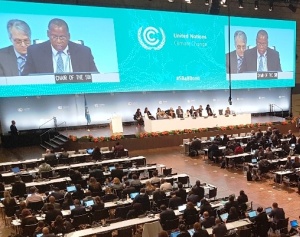
Engineers Canada attends UNFCCC conference in Bonn, Germany
Globalization Committee
The Globalization Committee was created in the fall of 2016 to provide expertise and input in six areas: offshore engineering and its impact, the promotion of international mobility registers, inventorying of tools and processes to support international standards of engineering behaviour, the creation of a statement of Canadian engineering interests to support government negotiations, input on professional service provisions for individual trade agreements, and development of a national position statement on the globalization of engineering services.
In 2018, the committee held monthly meetings between January and September to review progress of each charge. Work was completed on four charges in the fall of 2018 with a final report to be delivered in 2019.
In addition to substantial progress on each area of the committee’s work, we saw an increased presence of Engineers Canada’s position on international trade in professional services in senior-level decision making coming out of Global Affairs Canada (GAC). This was achieved through participation in CUSMA negotiations, as well as several updates we provided during GAC committee meetings. Engineers Canada also had several opportunities to be involved with discussions on regional trade agreements, both through committee meetings and in-person conversations.
PIEVC and IRP
The Public Infrastructure Engineering Vulnerability Committee (PIEVC) program includes the management and distribution of the Engineers Canada-designed PIEVC Protocol to assess the vulnerability of public infrastructure to the climate risks. In 2018, work on PIEVC included the development of a standardized non-disclosure and release agreement, and the delivery of workshops to federal government and provincial agencies.
In June 2018, Infrastructure Canada issued the Climate Lens requirement for considering climate as part of infrastructure planning and investment. It lists the PIEVC Protocol as one of the acceptable tools for demonstrating proper consideration of climate. Transport Canada and Public Works and Procurement Services implemented multi-year programs to asses their infrastructure assets for climate risks and vulnerabilities and are using the PIEVC Protocol as the methodology. Other notable applications of the PIEVC protocol included an assessment of three city parks in Mississauga and an assessment of the Nanaimo Regional General Hospital campus.
In late May 2018, as part of the member-approved 2019-2021 Strategic Plan, the Engineers Canada Board directed that the PIEVC Program be divested to another organization. Work to begin this process included the development of a divestment plan and consultations with potentially interested parties. In 2019, this work will continue with a Request for Expressions of Interest and a Request for Proposals.
The Infrastructure Resilience Professional (IRP) Program continued to operate between January and June 2018, and currently there are seven designated Infrastructure Resilience Professionals. This work included the delivery of several courses. In May 2018, with the members’ approval, the Engineers Canada Board directed that the IRP Program be divested to another organization as part of the Engineers Canada 2019-2021 Strategic Plan. As a result, the IRP Program was put on hiatus at the end of June 2018. A divestiture plan was subsequently approved for completion by the end of 2019.
10. Member Services
Engineers Canada works to ensure that customized services and products are available for every stage of an engineer’s career.
In 2018, Engineers Canada continued to grow and augment its insurance plans and financial services for members of the engineering profession:
- We were instrumental in creating and introducing a Job Loss Waiver of Premium in collaboration with Manulife—a first of its kind in Canada’s insurance industry—which will benefit engineers participating in the Engineers Canada-sponsored term life insurance program. Effective April 1, the enhanced benefit ensures that individuals’ term life coverage continues free of charge for up to 12 months if they experience job loss due to involuntary layoff, dismissal without cause, or loss of self-employment before age 65.
- We executed signed agreements with all participating regulators in the Engineers Canada sponsored home and auto insurance program.
- In collaboration with Pro-Form Sinclair Professional, we produced two short animated videos providing an overview of the Secondary Professional Liability Insurance program’s features and benefits. The videos were supported using a combination of social media posts and coverage in the Engineers Canada newsletter. They were also shared with the participating regulators.
11. Trademark Protection
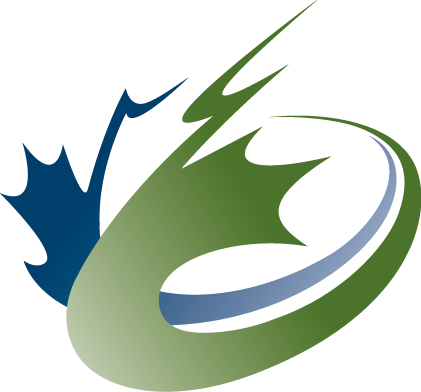 On behalf of the provincial engineering regulators, Engineers Canada holds and administers a portfolio of intellectual properties that includes official marks and registered trademarks, including registered certification marks. Engineers Canada is the owner of an official mark for each of the following professional engineering designations:
On behalf of the provincial engineering regulators, Engineers Canada holds and administers a portfolio of intellectual properties that includes official marks and registered trademarks, including registered certification marks. Engineers Canada is the owner of an official mark for each of the following professional engineering designations:
- ENGINEER
- ENGINEERING
- CONSULTING ENGINEER
- PROFESSIONAL ENGINEER
- P.ENG.
- GÉNIE
- INGÉNIERIE
- INGÉNIEUR CONSEIL
- INGÉNIEUR
- ING.
Working with the provincial and territorial regulators, Engineers Canada provided its consent to 35 requests in 2018 from engineers looking to register a federally incorporated company containing “engineering” or related terms in their names.
12. Celebrating engineering excellence
Engineers Canada Awards
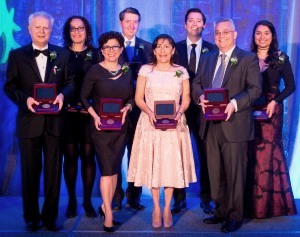
Each year, Engineers Canada honours outstanding Canadian engineers, teams of engineers, engineering projects, engineering achievements, and engineering students through the annual Engineers Canada Awards program. Last year’s recipients were:
Back row, from left to right:
- Hanan Anis, PhD, P.Eng. (PEO): Medal for Distinction in Engineering Education
- Kevin Hodgins, P.Eng. from Iqaluit International Airport Improvement Project (NAPEG): National Award for an Engineering Project or Achievement
- Maximilian Mantha, MBA, P.Eng. (PEO): Young Engineer Achievement Award
- Vanessa Raponi (PEO student member): Gold Medal Student Award
Front row, from left to right:
- Levente L. Diosady, PhD, P.Eng. (PEO): Gold Medal Award
- Jeannette Montufar, PhD, P.Eng. (EGM): Award for the Support of Women in the Engineering Profession
- Rosa Galvez, PhD, ing. (OIQ): Meritorious Service Award for Professional Service
- Gary Schubak, M.A.Sc., P.Eng. (Engineers and Geoscientists BC): Meritorious Service Award for Community Service
Scholarships
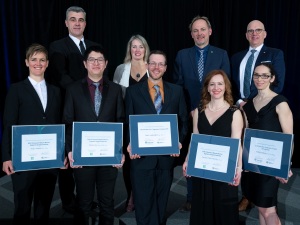
In partnership with Manulife and TD Insurance, Engineers Canada awards six cash prizes totalling $60,000 each year to professional engineers returning to university to further their studies. The recipients of the 2018 scholarships were, in the front row from left to right:
- Holly Annand, M.Sc., P.Eng. (APEGS), who is researching the influence of both climate change and wetland drainage on the hydrological responses of prairie basins. From this, she aims to develop tools that will ultimately help maintain agricultural productivity in different parts of the Prairies in the longer term.
- Michael Ge, M.Sc., P.Eng. (APEGA), who is studying the linkage between land use and transportation, with the goal of conceiving new ways to redesign transportation systems for people of all ages and abilities, reducing car dependency and better utilizing space for other modes of transport.
- Junior Lagrandeur, M.Sc.A., ing. (OIQ), who is working to reduce companies’ consumption of energy and greenhouse gas emissions through his research on vortex tubes—simple, low-cost devices that make it possible to generate a flow of hot air and flow of cold air from a single source of compressed air without any mobile part or synthetic refrigerant that is harmful to the environment.
- Jocelyn Peltier-Huntley, P.Eng. (APEGS), who has conducted a mixed-method study, combining qualitative and quantitative data to address the persistent underrepresentation of women in the Canadian mining industry. From this, she aims to develop a practical guide for emerging influencers to support the required cultural shift in their organizations, the engineering profession, and the Canadian mining industry.
- Melody Johnson, M.A.Sc., P.Eng. (PEO), who is studying whether the pre-treatment of wine wastewater with advanced oxidation processes may be used to improve their co-treatment in municipal treatment plants. Her research could benefit Canadians by reducing the mass of recalcitrant and toxic compounds being discharged into waterways.
Not pictured:
Sabrina Diemert, P.Eng. (Engineers and Geoscientists BC), who aims to improve our understanding of the role that microbial communities play in the treatment of contaminants in water. This could be used to encourage the growth of specific microbial species to improve water treatment technologies, benefitting communities in both industrialized and developing regions.
Fellows of Engineers Canada
Engineers who have given noteworthy service to the engineering profession through their work with either Engineers Canada or the provincial and territorial regulators can be nominated for an Engineers Canada fellowship.
In 2018, 88 individuals were named Fellows of Engineers Canada:
Professional Engineers Ontario
- Hanan Anis, FEC, P.Eng.
- Ishwar Bhatia, FEC, P.Eng.
- Brett Chmiel, FEC, P.Eng.
- Ronald Clarkin, FEC, P.Eng.
- Benjamin de Haan, FEC, P.Eng.
- Roy Fernandes, FEC, P.Eng.
- Mohammad Horriyat, FEC, P.Eng.
- Fazlae (Murad) Hossain, FEC, P.Eng.
- David Kahn, FEC, P.Eng.
- Lindsay Keats, FEC, P.Eng.
- Clarence Klassen, FEC, P.Eng.
- Lisa MacCumber, FEC, P.Eng.
- Roshy (Stan) Mathew, FEC, P.Eng.
- Maged Naguib, FEC, P.Eng.
- Harneet Panesar, FEC, P.Eng.
- Adrian Pierorazio, FEC, P.Eng.
- Andrew Poray, FEC, P.Eng.
- Serge Robert, FEC, P.Eng.
- Peter Rozitis, FEC, P.Eng.
- Magdy Samaan, FEC, P.Eng.
- Paymon Sani-Bakhtiari, FEC, P.Eng.
- Ryan Spencer, FEC, P.Eng.
- Mihir Thakkar, FEC, P.Eng.
- Leanne Whiteley-Lagace, FEC, P.Eng.
- Tze-Wei (John) Yeow, FEC, P.Eng.
Engineers PEI
- Jason Lindsay, FEC, P.Eng.
Engineers Geoscientists Manitoba
- Kathryn Atamanchuk, FEC, P.Eng.
- Christopher Clary-Lemon, FEC, P.Eng.
- Keith Derksen, FEC, P.Eng.
- Jeannette Montufar, FEC, P.Eng.
- Trevor Ouellette, FEC, P.Eng.
- Philip Reynolds, FEC (Hon.), M.A.A.
Association of Professional Engineers and Geoscientists of Alberta
- Saumya Barua, FEC, P.Eng.
- Douglas Buchanan, FEC, P.Eng.
- Genesh Chariyil, FEC, P.Eng.
- Keng Chung, FEC, P.Eng.
- Tapas Das, FEC, P.Eng.
- Malcolm Edirisinghe, FEC, P.Eng.
- Jennifer Enns, FEC, P.Eng.
- RaeAnne Leach, FEC, P.Eng.
- Brian Morrison, FEC, P.Eng.
- Don Raboud, PhD, FEC, P.Eng.
- Bob Rundle, FEC, P.Eng.
- Stanley Zwierzchowski, FEC, P.Eng.
Engineers Nova Scotia
Allison (Sonny) Launey, FEC, PE, P.Eng.
- Mary Miles, FEC, P.Eng.
- Mae Seto, FEC, P.Eng.
- Kristopher Dove, FEC, P.Eng.
Professional Engineers and Geoscientists of Newfoundland and Labrador
- Gerard Dunphy, FEC, P.Eng.
- Michael W. Greene, FEC, P.Eng.
- William Maybee, FEC, P.Eng.
- Kevina Willmott, FEC (Hon.)
Association of Professional Engineers and Geoscientists of Saskatchewan
- Ernest M. Barber, FEC, P.Ag., P.Eng.
- John Baron, FEC, P.Eng.
- Daniel L. Bonnet, FEC, P.Eng.
- Donald H. George, FEC, P.Eng.
- Rajesh Karki, FEC, P.Eng.
- Kerry A. Mazurek, FEC, P.Eng.
- Wendy Paddock, FEC (Hon.)
- Gregory F. Vogelsang, FEC, P.Eng., P.Geo.
Ordre des ingénieurs du Québec
- Pierre-Claude Aïtcin, FIC, ing.
- André Bazergui, FIC, ing.
- Réjean Breton, FIC, ing.
- Christophe Guy, FIC, ing.
- Sylvain Martel, FIC, ing.
- Louise Millette, FIC, ing.
NAPEG
- Krishan G. Bassi, FEC, P.Eng.
- Kevin D. Bolstad, FEC, P.Eng.
- J. Paul Guy, FEC, P.Eng.
- Heather E. Hayne, FEC, P.Eng.
- Sudhir K. Jha, FEC, P.Eng.
Engineers Geoscientists New Brunswick
- Francis X. Collins, FEC, P.Eng.
- Thomas H. MacNeil, FEC, P.Eng.
Engineers Canada
- Marie Claverie, FIC (hon.)
- Chantal Colavizza, FEC (Hon.)
- Lisa Dennis, FEC (Hon.)
- Randa Dirani, FEC (Hon.)
- Lucy Lefebvre, FEC (Hon.)
- Marlene McCourt, FEC (Hon.)
- Alexander Olivas, FEC (Hon.)
- Lynne Tremblay, FIC (hon.)
- Lynn Villeneuve, FEC (Hon.)
- Doris Yee, FEC (Hon.)
13. Internal enablers
Information Technology
In 2018, Engineers Canada undertook a major internal initiative it dubbed the “Space Program,” which involved the migration of on-site email and SharePoint environments to a cloud-based platform. While the team initially encountered several challenges in preparing the transition of the email environment, the reward for several months of difficult and detailed work was realized first in May with the transition of all staff to cloud-based email and then in July when the organization’s SharePoint environment was moved to the cloud. The remainder of the year was dedicated to the development of a new information architecture that will fully leverage the extensive capabilities of SharePoint, to be deployed in 2019.
Organizational Excellence
The Organizational Excellence team regularly provides planning and project support for teams across Engineers Canada. This includes co-ordination of Board meetings and the development of the Annual Operating Plan (AOP). Above and beyond this regular work, 2018 involved bringing the AOP into alignment with the requirements laid out in the new 2019-2021 Strategic Plan.
Throughout the year, the team also supported several major initiatives aimed at improving the processes behind Engineers Canada work:
- Project and change management for major initiatives such as the Accreditation Improvement Program; Governance, Strategic Planning and Consultation project; and the Space Program
- The submission process for our successful silver certification against Excellence Canada’s Excellence, Innovation and Wellness Standard
- A significant change management and training initiative within the Space Program called the “Space Race”, which introduced staff to the suite of tools available through the Office 365 platform
The latter of these applied a team-based gamification approach, which engaged all staff in a fun and informative learning environment that advanced knowledge organization-wide in the use of new tools and applications.
Communications
In addition to the regular support work the communications team provides for the initiatives and programs of Engineers Canada, in 2018 the communications team also undertook several projects to improve experiences for Engineers Canada’s audiences and stakeholders. Throughout the course of the year, the team completed a structured refresh of high traffic and top-priority web pages, introducing new processes for web page evaluation and external validation of improvements. In September, the team also launched a refresh of Engineers Canada’s national newsletter under the new title of Engineering Matters. The redesign was undertaken to place greater focus on issues impacting the present and future of engineering.
14. Our culture
The Journey to Excellence
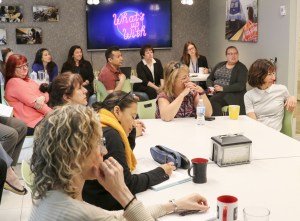
The Journey to Excellence for Engineers Canada began formally on January 19, 2016, when the executive leadership team made the decision to develop a more systematic approach to its ongoing continual improvement efforts in order to achieve its short, medium, and long-term goals. This would be accomplished by working through the various levels of Excellence Canada’s Excellence, Innovation and Wellness standard.
November 6, 2018 marked an exciting milestone on our ongoing Journey to Excellence. At the Canada Awards for Excellence ceremony in Toronto, ON, we officially received silver certification against the Excellence, Innovation and Wellness standard. The Canada Awards for Excellence is the nation’s pre-eminent recognition of organizational excellence. The achievement of this standard represents significant organizational improvements, which have led to enhanced organizational focus and alignment, reduced staff turnover, and a culture of continuous improvement. Employees are engaged and working in a culture that encourages and values the free flow of information in pursuit of continual growth. Taken as a whole, these ultimately enhance the organization’s ability to serve the engineering profession.
National Capital Region’s Top 100 Employers
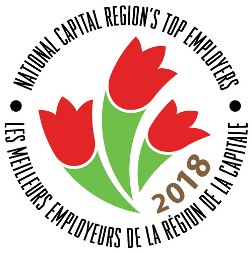 In April 2018, Engineers Canada was recognized as one of the 2018 National Capital Region’s Top Employers for its third year running. This special designation recognizes employers in the Ottawa-Gatineau metropolitan area that lead their industries in offering exceptional places to work. Engineers Canada was selected for a number of reasons, including its support for new parents, its culture of organizational excellence, and its charitable giving.
In April 2018, Engineers Canada was recognized as one of the 2018 National Capital Region’s Top Employers for its third year running. This special designation recognizes employers in the Ottawa-Gatineau metropolitan area that lead their industries in offering exceptional places to work. Engineers Canada was selected for a number of reasons, including its support for new parents, its culture of organizational excellence, and its charitable giving.
Charitable giving
Engineers Canada staff continued to demonstrate their deep community involvement and volunteerism in 2018:
- In July, Engineers Canada staff participated in the HOPE Beach Volleyball tournament and contributed close to $1,000 to six local charities that included Special Olympics Ontario – Greater Ottawa, the Dementia Society of Ottawa and Renfrew County, the Ottawa Mission, the Ottawa Regional Cancer Foundation, the Children’s Aid Foundation of Ottawa, and Make-A-Wish Eastern Ontario Canada.
- As in previous years, Engineers Canada staff continued to donate to the Canadian Engineering Memorial Foundation (CEMF) through a payroll deduction.
- In December, Engineers Canada staff donated $800 to Live Work Play as part of its holiday charitable giving. Live Work Play helps the community welcome people with intellectual disabilities to live, work, and play as valued citizens.
- In December, staff organized a holiday food drive, which saw extensive participation.
- In December, Engineers Canada ran Feats of Gingerbread, a holiday gingerbread engineering challenge, which bought together Canada’s engineering community to raise $20,000 for charities of participants’ choice.
15. Our members
Engineers Canada is the national association of the 12 provincial and territorial engineering regulators in Canada.
16. Our people
Current as of December 2018” at the top of this page
Board of Directors
Directors

Annette Bergeron, FEC, P.Eng.
President
Ontario
Principal, Bergeron Consulting

David T. Lynch, PhD, P.Eng., FCAE, FEC, FEIC, FCIC, FGC (Hon.)
?President-elect
Alberta
Professor Emeritus (Chemical Engineering), University of Alberta
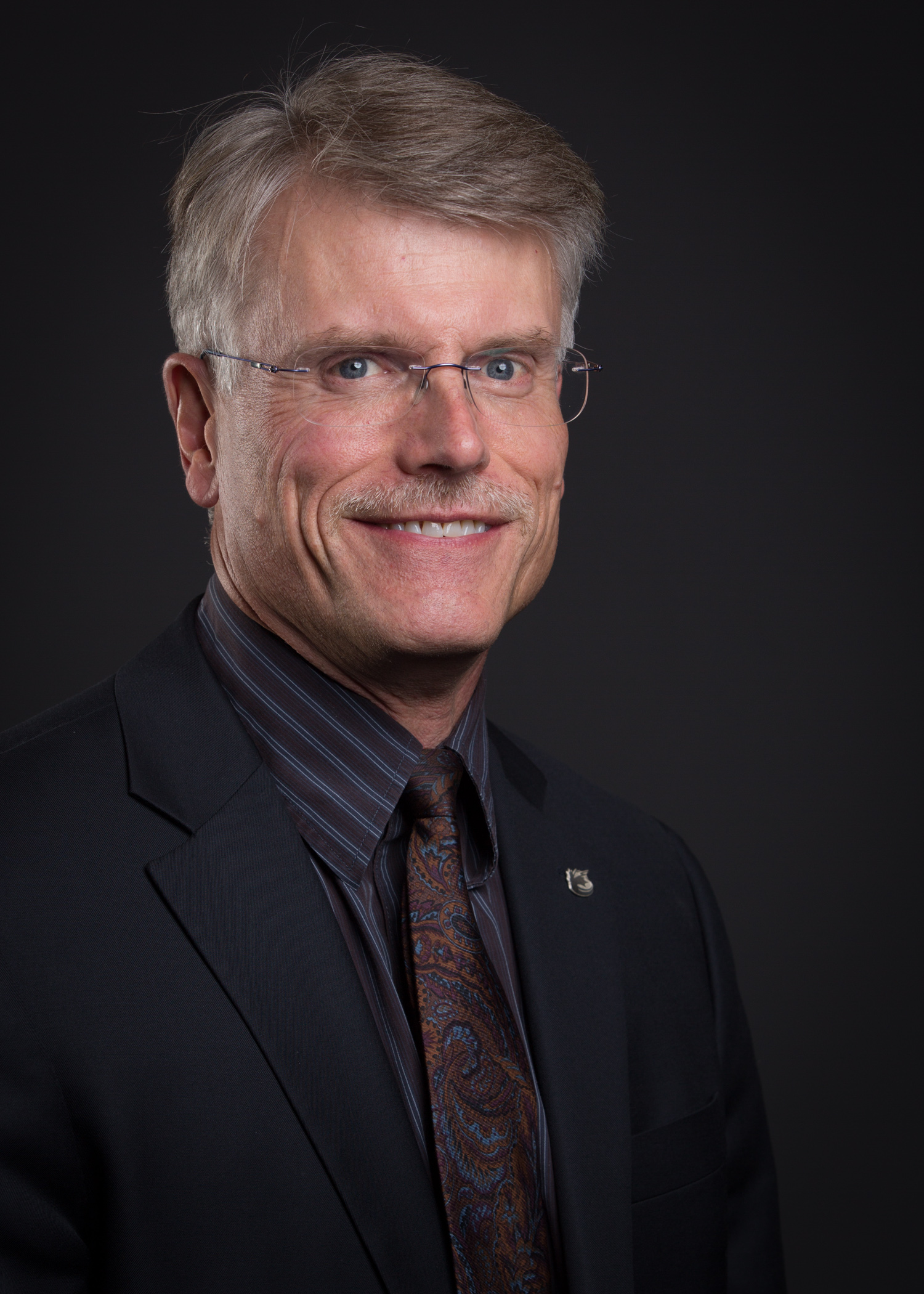
Russ Kinghorn, FEC, P.Eng.
Past-President
British Columbia
Principal, Kinghorn Systems Engineering

Kathy Baig, ing., FEC, MBA
Quebec
President, Ordre des ingénieurs du Québec

Christian Bellini, FEC, P.Eng.
Ontario
Principal, Blackwell Structural Engineers
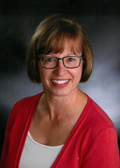
Jean Boudreau, FEC, P.Eng.
New Brunswick
Principal and Senior Transportation Engineer, GEMTEC Limited

Terry Brookes, FEC, P.Eng.
Northwest Territories
Assistant Director Airport Facilities, Department of Transportation,
Government of the Northwest Territories

David W. Brown, P.Eng., BDS, C.E.T.
Ontario
Managing Director – TaskForce Engineering Inc.
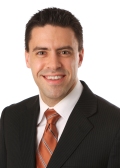
Jeff Card, FEC, P.Eng.
Newfoundland and Labrador
Senior Buildings Manager – Bell Canada

Louis Champagne, FIC, ing.
Quebec

Danny Chui, FEC, P.Eng.
Ontario
Manager, Capital Works, Exhibition Place

Sarah Devereaux, M.Eng., FEC, P.Eng.
Nova Scotia
Partner, Dillon Consulting Ltd.

Lisa Doig, MBA, FEC, P.Eng.
Alberta
Principal, O’Doig Consulting
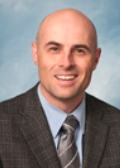
Justin Dunn, FEC, P.Eng.
Prince Edward Island
Director, Facilities Management, Holland College

Gary Faulkner, PhD, FEC, FGC (Hon.), P.Eng.
Alberta
Director, Rehabilitation Research and Technology Development, ?Alberta Health Services
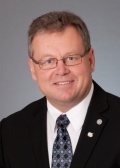
Dwayne Gelowitz, FEC, P.Eng., FCSCE
Saskatchewan
Principal, Water Sector Lead, Stantec Consulting Ltd.
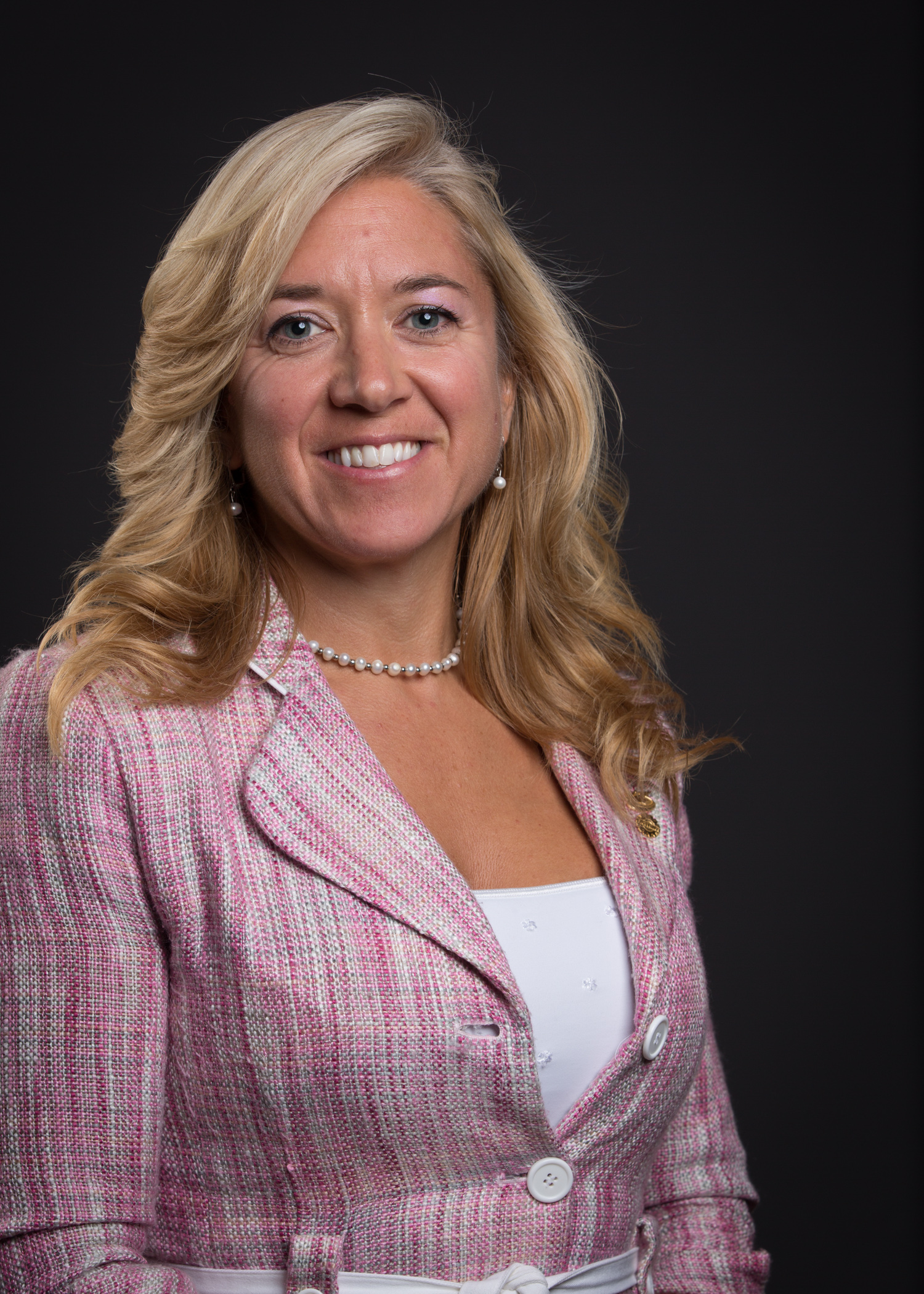
Sandra Gwozdz, FIC, ing.
Quebec
Project Engineer, Bombardier Aerospace
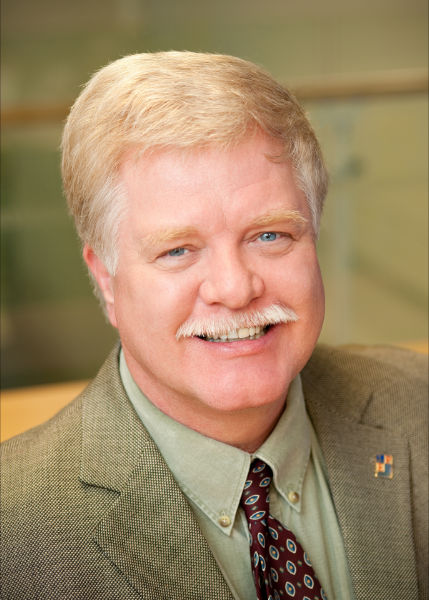
Jeff Holm, FEC, P.Eng., FGC (Hon)
British Columbia
Senior Infrastructure Manager, Allnorth Consultants Limited

Carole Lamothe, ing.
Quebec
Directrice de projets majeurs, EUROVIA Québec

Dawn Nedohin-Macek, FEC, P.Eng.
Manitoba
Project Portfolio Engineer, Manitoba Hydro

Connie Parenteau, FEC, FGC (Hon), P.Eng.
Alberta

Rakesh Shreewastav, FEC, P.Eng., AVS
Ontario
Manager, Civil Infrastructure, MetroLinx
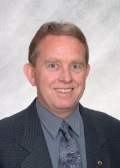
Richard Trimble, FEC, P.Eng.
Yukon
Principal Consultant – Arctic Region, Engineering Practice
Advisor
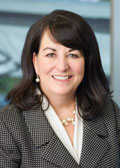
Ann English, P.Eng.
Chief Executive Officer and Registrar, APEGBC
Chair, Chief Executive Officers Group

Gerard McDonald, MBA, P.Eng.
Chief Executive Officer, Engineers Canada
Staff
- Aude Adnot-Serra
- Maria Arrieta
- Susan Bourgon
- Colin Brown
- Catherine Christoffersen
- Jessica Christou
- Marie Claverie
- Chantal Colavizza
- Lisa Dennis
- Randa Dirani
- Shelley Ford
- Brent Gibson
- Linda Gray
- Willow Guy
- Johanne Lamarche
- John Langlois
- David Lapp
- Marlene McCourt
- Gerard McDonald
- Emily McParland
- Ryan Melsom
- Jorge Monterrosa
- Ivan Ntale
- Alexander Olivas
- Martha Oram
- Mélanie Ouellette
- Cassandra Polyzou
- Tracey Pope
- Stephanie Price
- Aneel Rangi
- Adam Rodrigues
- Emily Rowan
- Carole Roy
- Lorelei Scott
- Kyle Smith
- Daphne Smith
- Jeanette Southwood
- Evelyn Spence
- Beryl Strawczynski
- Joey Taylor
- Renée Taylor
- Heidi Theelen
- Joachim Toelke
- Lynn Tremblay
- Dan Villeneuve
- Lynn Villeneuve
- Mya Warken
- Doris Yee
17. Our sponsors
Engineers Canada thanks its partners for their ongoing support and contributions to its 2018 Annual General Meeting and Awards event.
Platinum
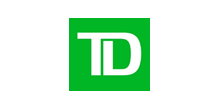
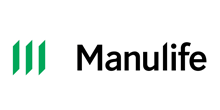
Silver
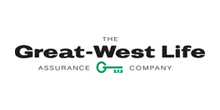
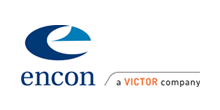
Bronze
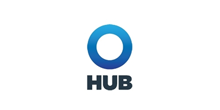
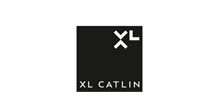
Supporter
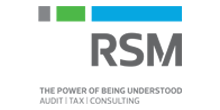
Friends
